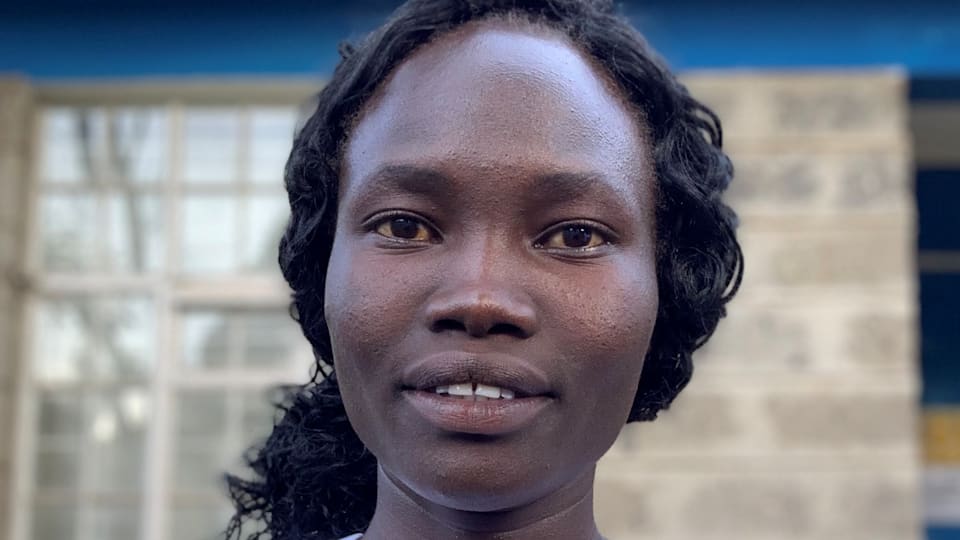Athletics: Rose Nathike using the Olympic platform to change how people see refugees globally
After the life changing experience of Rio 2016, refugee athlete and Rio flag bearer Rose Nathike is back for a second games. The road to Tokyo was far from smooth, but with her usual resilience Nathike returns, and remains a symbol of hope.

Nothing could have prepared refugee athlete Rose Nathike for the reception she and her teammates received at the Maracana stadium.
As they walked into the arena in Rio, they were greeted by the roar of the home crowd and applause from fellow Olympians - it was a feeling so heart-warming that in the moment she felt alive; she felt 'normal.'
“We feel like we are human beings,” Nathike shared with Olympics.com, looking back on the life changing moment at the Games in 2016. “We can do what others are doing also.”
Rio was the first outing of the IOC’s Refugee Olympic Team. A concept created in 2015 with the intention of delivering a message of hope and solidarity.
Under the EOR banner, ten refugee athletes across three disciplines each made their individual mark on the Games. They touched the lives of settled people and refugees alike as they stood side-by-side, contending with the world’s greatest athletes.
Nathike soon found herself racing one of the biggest names in athletics.
“In 2016, I was with Caster Semenya of South Africa. Then I was so nervous! How could I compete with this champion?” shared the 28-year-old still in a tone of disbelief.
“I say – let me try my best.” And she did, Nathike finished in 7th place in her heat, in the 800m.
From Rio to Tokyo for refugee Rose
The Rio 2016 flag bearer is back and ready to head to her second Olympic Games at Tokyo 2020.
It’s an exceptional feat given that back in 2015, when she first arrived at Tegla Loroupe Refugee Training Centre in Ngong and was told she would begin training for the Rio Olympics in one year’s time, she didn’t even know what the Olympics were:
“I thought maybe Rio is in Nairobi… I ask my coach, ‘who is this Olympic Games?’” Nathike giggles as she fondly recalls asking the question.
“They say, 'It’s the biggest games whereby all the nations are going to compete, and you guys have to work hard so you can qualify.'”
Now an Olympics specialist, Nathike has also competed on other global stages. In 2017 she took part at the World Athletics Championships in London with the Athlete Refugee Team. Two years later, she repeated her appearance at Worlds in Doha.
Her path was trending upwards; she was improving.
Then, of course, the Covid pandemic struck.
For refugees like Nathike, who had already lost their homes and sense of permanence after being displaced, it added new layers of uncertainty.
Nathike and the refugee athletes, found their Olympic preparations come to a screeching halt. They were required to relocate from their training camp in Ngong and return to Kakuma Refugee Camp, the place where their talent was originally discovered.
“We were taken back to the camp – the refugee camp – because all the camps in Kenya were closed. So we were forced to go back.” Rose describes.
“You know, training in Kakuma, the weather is too hot. You are not able to train.”
“We took almost 9 months there.”
The considerable break in Nathike’s training just before the Games meant that she was compelled to tap deep into her mental reserves and find the resilience she has all too often had to rely upon.
She remembered the well-rehearsed mantra that has guided her through the worst of times to keep her Olympic dreams alive.
“You are not able to train but that doesn’t stop you from what you want to do, so we trained individually.”
“We have been having a lot of challenges but – that is something you wanted to achieve in the future – so I was saying, let me just try my best. As long as I keep on training - even if I train alone - one day, one time this lockdown will go, and the pandemic will go.”
Fortunately for Nathike, the restrictions have since been lifted, and the athletes were able to return to training in Nairobi earlier this year.
“Whatever you dream, you can also do.”
It’s a message Nathike doesn’t just share to the 80 million other displaced people around the world, but it’s also something she lives and breathes.
Speaking directly to the refugees she will once again represent on sport’s greatest stage in Tokyo, Nathike says:
“Being a refugee is just a status and being a refugee doesn’t mean your life ends there. As long as you do what is right for you, you can achieve whatever you want.”
“You know for us going to the Olympics, when we go back to Kakuma refugee camp, sometimes we encourage the young girls, and boys also to do sport because we know the perception of people saying refugees are not we people. We are all human beings, no one chooses to be a refugee."
"As long as you are given a chance as a refugee, you can do whatever you want” - Rose Nathike
